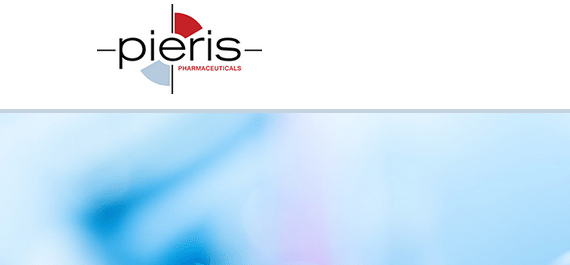
On June 10, 2015, we learnt that Pieris Pharmaceuticals (OTCMKTS:PIRS) had filed for an IPO that would see it shift from its current pink sheet status on the OTCQB to a NASDAQ listed company, as well as raise approximately $35 million to fund ongoing capital expenditure. The company currently has a relatively small market capitalization (circa $100 million) but a successful IPO could prove the catalyst behind an upside revaluation in the company’s worth, and in turn, present an investor the opportunity to draw a short-term gain from yet another IPO in the biotech space this year. So, with this said, what is Pieris all about, where does the company stand with its lead candidate’s, and what will the NASDAQ listing (if successful) mean for Pieris going forward? Let’s take a look.
First, let’s have a quick look at the company itself. Pieris develops treatments based on its proprietary Anticalin therapeutic. Anticalins are artificial proteins that bind to antigens, which can be either proteins or small molecules. They are based on what is called a lipocalin – essentially a protein that carries molecules from one part of the human body to another. You can think of them as a type of basket that encases and then bends to encapsulate and tighten around molecules, meaning they can targets certain diseases very specifically when artificially synthesized. Pieris’ current lead candidate is an Anticalin called PRS-080, which is an Anticalin against hepcidin that targets the treatment of anemia. How does it work? Well, in anemic patients, hepcidin levels are elevated. Hepcidin traps iron in stores (pockets) in the body, which leads to a functional iron deficiency. PRS-080 neutralizes hepcidin, which not only reduces the level of inane storage but also increases the efficacy of utilization by the body.
Pieris is currently in phase 1 trials of PRS-080, and the company reported data just yesterday with regards to progress in the trial. In the announcement, Pieris reported that it had completed dosing in healthy volunteers in the program, conducted at a single site in Germany. The company treated thirty six out of forty eight total candidates with varying doses of Anticalin, ranging from 0.08 to 16 mg per kilogram, and no dose limiting toxicities were observed, while no maximum tolerated dose was reached.
Stephen Yoder, President and CEO of Pieris, had this to say alongside the announcement:
“We are pleased to have completed enrollment of this clinical trial, which is the second Anticalin to be dosed in humans… With drug supply on hand, we look forward to rapidly advancing PRS-080 into patient studies.”
A secondary candidate is being trialed in the company’s novel Anti-CD137 and HER2 Bispecific Immuno-Oncology Program, data for which Pieris presented at the UBS conference back in May. The data revealed that several characterized CD137-engaging Anticalins exhibit agonistic properties through target cross-linking. In short, the drug demonstrated efficacy. This is exciting, as, while preclinical, we should get a number of updating announcements over the coming quarters that could drive volatility in Pieris. An aggressive investor may play this volatility to draw short-term profit from any market-driven action in the company’s stock.
Looking at its pipeline aside from the two candidates already mentioned, Pieris also has a few partner programs – all of which are currently in their preclinical stages. Two of these are in collaboration with Daiichi Sankyo Company, Limited (OTCMKTS:DSNKY), with initiations back in April 2010 and discovery phase already complete. Both are Anticalin investigations, and both are targeted at Daiichi Sankyo indications. The third is an Anticalin drug development program in collaboration with Sanofi (NYSE:SNY) designed to expand a novel multi-specific program under the existing framework of an agreement first announced back in 2010. Once again, these programs should drive a certain amount of volatility if we get any preclinical updates with regards to progress over the coming 12 months.
So, what’s the takeaway? Well, Pieris has a number of candidates currently in early-stage trials, across a range of incidences that – if successful – could generate large revenues for the company. Obviously, it is still early days, but with the pending NASDAQ listing and a number of partnerships with incumbent bio pharmas, this could be a space to watch over the coming few years. As a final thought, and as mentioned in the introduction to this piece, Pieris is valued at circa $100 million at present. If just one of its candidates makes forward into phase 2 phase 3, this is likely to change quickly.




